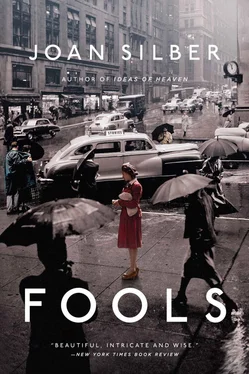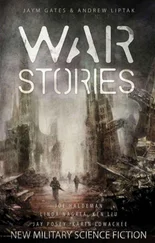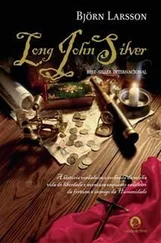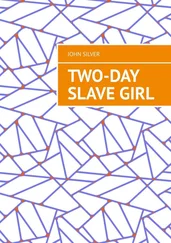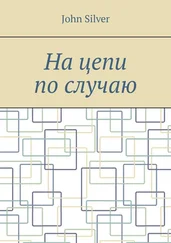“People can be unbearable if they want,” Carol said.
“A little moaning is fine,” Casey said.
“I think he’s going to punch his wife,” Marcus said. “I can’t wait. Is that totally wrong of me?”
“Yes,” Carol said.
Marcus had been with Nico for five years, which was really not such a long time. Probably Nico had always wanted someone more glamorous. Their Brooklyn apartment — half a brownstone in Cobble Hill, with a little yard in the back — was now Nico’s, and Marcus was in a bare, silly studio in downtown Brooklyn. When would he stop hating his life? Sometimes he caught sight of himself in the mirror and he thought, That sucker looks so pathetic . The wincing eyes, the clamped jaw. And that was his public face. In the dark he probably looked like ashes and dirt. When he woke up out of his sleep, he was a naked bag of bones too familiar to himself. He’d never believed it would last forever with Nico, but the thought of that only compounded his suffering.
It was not, of course, the only suffering in the world. Marcus knew what the world was. Every day he read the news, with its war atrocities and massacres of civilians, rape camps, drug murders, nuclear disaster. Year after year he filed papers for clients who lived with rats, leaking sewage, lead paint, guns in the elevator. He’d spent time in India, seen the streets of Mumbai. He wasn’t a sap.
Marcus did not rush off to read after dinner. He did the dishes, he heard Carol tell a funny story about deer getting into their garden. He and Casey played a ridiculous game of Frisbee in the dark, running and jumping for the phantom disk, and horsing around as if they weren’t both in their late thirties already. He was properly tired when he went back to his room. He’d had a full day and was ready to be fast asleep in his sweet, musty garret on the top floor. He didn’t think he would read tonight, but he did.
The author was having a peevish argument with his wife Betsy. She made fun of his household economies — he saved string from packages, he tried to get her to darn socks and turn his collars, to cook variety meats. “Cheapness is a moral virtue to you,” she said.
“It is,” he said. “That’s how we manage to live without selling ourselves.”
Betsy laughed at him. He had never seen her do this before — her face was full of merry scorn — and he began shouting at her. “I have mercifully forgotten the words I shouted, but I know that I had to keep myself from striking her. I was a young man with a good opinion of myself; every thought I had was against violence and domination, and it was a dreadful shock to find myself thus. I had my hand in the air, ready to strike at her face, and Betsy screeched in fear.”
Marcus sort of liked the smart-ass Betsy, whose revolutionary spirit had probably been a matter of disposition more than politics. She was too much for the author, that was clear.
The poor husband’s apologies put an end to the fight, but Marcus could tell more was in store. Early in the morning, just past dawn, he read the rest. Terrified of losing Betsy, the repentant husband turned to the desperate strategy of buying her a string of glass beads — in red, her favorite color — to make amends. In hock to all his friends, he could only think to ask Joe’s wife, Vera, for a loan, though he had never stooped to borrowing from a woman before. Vera was apparently an eager, mousy, vain person, easily persuaded. Betsy was delighted with the necklace and thanked him afterward with hugs and kisses and other things not quite mentioned on the page.
Just as the author was sure his suspicions of her had been unfair, Betsy spilled the beans. She was leaving him for the man who ran the speakeasy. What man? Marcus had guessed nothing and was angry at the writer for failing to give clues. Not playing fair with the reader.
“You might have thought this woman joining herself with an ordinary barkeep did not have an idea in her head. Betsy had plenty of ideas, but she chose to abandon them. She wanted to live out of a lesser part of herself, whereas I was trying for better. I seemed a prig to her when I said it, but that is the flame I have lived by.”
He did sound priggish there, but Marcus was basically with him.
The humiliated author wanted to get out of town so badly he managed, by scrimping and selling off whatever he owned and probably more borrowing, to get hold finally of a cheap boat ticket to Europe. “In Paris I was able to connect with fellow radicals. But I found this final separation from Betsy very painful — I was often in sorry shape those first months and spoke of little else but my loss. I might have thought Paris, City of Love, would lend an ear, but people showed great impatience and lack of interest. Who was I to them? My French was terrible, their English was often not very good. They had their own concerns. A number of them ventured forth to help comrades menaced by brutal police in Fascist Italy, and not all those who crossed the border returned. I understood that my own wounded heart was a weak topic in light of this bloodshed.
“My sojourn here has had its interruptions and hardships, but Paris has given me sustenance and joy, in the form of my dear wife and companion, Josette LeBlanc, and it blesses me now in my current satisfying life.”
This was not the book’s ending — there was another chapter, about old Villagers he ran into on the Boul’ Mich’—this was just a brief, sunny summary, a golden flash-forward. He couldn’t resist a surge of sentiment. And if that bumbling young putz could find lasting happiness, anyone could.
Nico would’ve liked such a book. Marcus had in fact picked it up half imitating Nico — Nico was a great collector of vintage postcards, moldy collections of obscure essays, photos of union picnics. The tinted and dusty surfaces of submerged characters called to him. Marcus wondered how many years he would spend acting out Nico’s old habits, just to keep him around.
And what did the author ever think he was doing, with his champagne cocktails and necklaces for Betsy? What kind of anarchist thinks money buys love? But a lover tries anything, that’s how it is. Gandhi’s alleged lover, Hermann Kallenbach, had donated all the land for a communal farm and training center that Gandhi set up in South Africa. Not that anyone thought Gandhi had given his body for cash.
In India, not so long ago, Marcus had been like Kallenbach — he’d tried to court someone with money. In Mumbai, of all places. He hadn’t even meant to go to India, but he’d been having trouble at work (lost a case it hurt to lose) and wanted to go somewhere far, far away. Someone must’ve told him India was wonderful. Which it was, in many ways. Fabulous elaborate temples, Bollywood billboards, women in glorious saris, flowers like Technicolor props. His modest hotel was right on the road that ran along the sea, with lovely breakfasts on the porch, and at first he thought, It’s not bad here at all . He wrote postcards showing the colonial Gothic hulk of the Victoria Terminus and he raved about the sunset at Chowpatty Beach. Nothing too terrible on the streets, not for a New Yorker. It took another day for him to meet what was waiting — the beggar with no legs pushing himself on a board with wheels, the tiny begging children leading tinier children, the skeletal old woman with hands like claws holding an infant up to a car window to beg. An Indian at his hotel tried to tell him that the beggars worked for gangsters and staged their plight. “Not getting fat at it, are they?” Marcus said.
He heard himself tell all sorts of fellow travelers that he couldn’t understand why there hadn’t been a revolt of the masses in India. Indians he met offered explanations — the caste system, fatalism, colonialism, corrupt leaders — or laughed at the silliness of the question. Marcus came to think that the question was a religious one: What the fuck is the matter with people? This isn’t going away, is it?
Читать дальше
